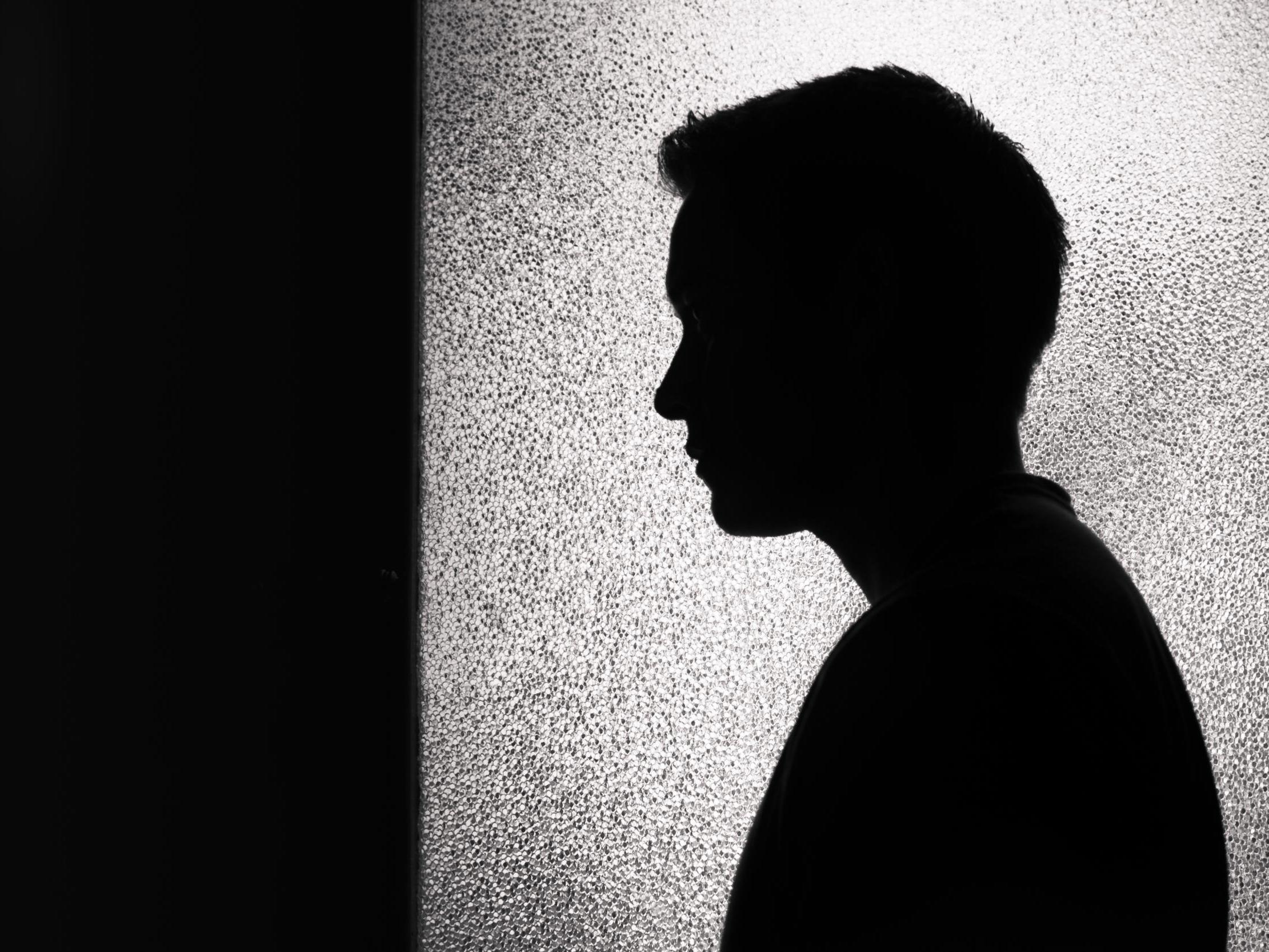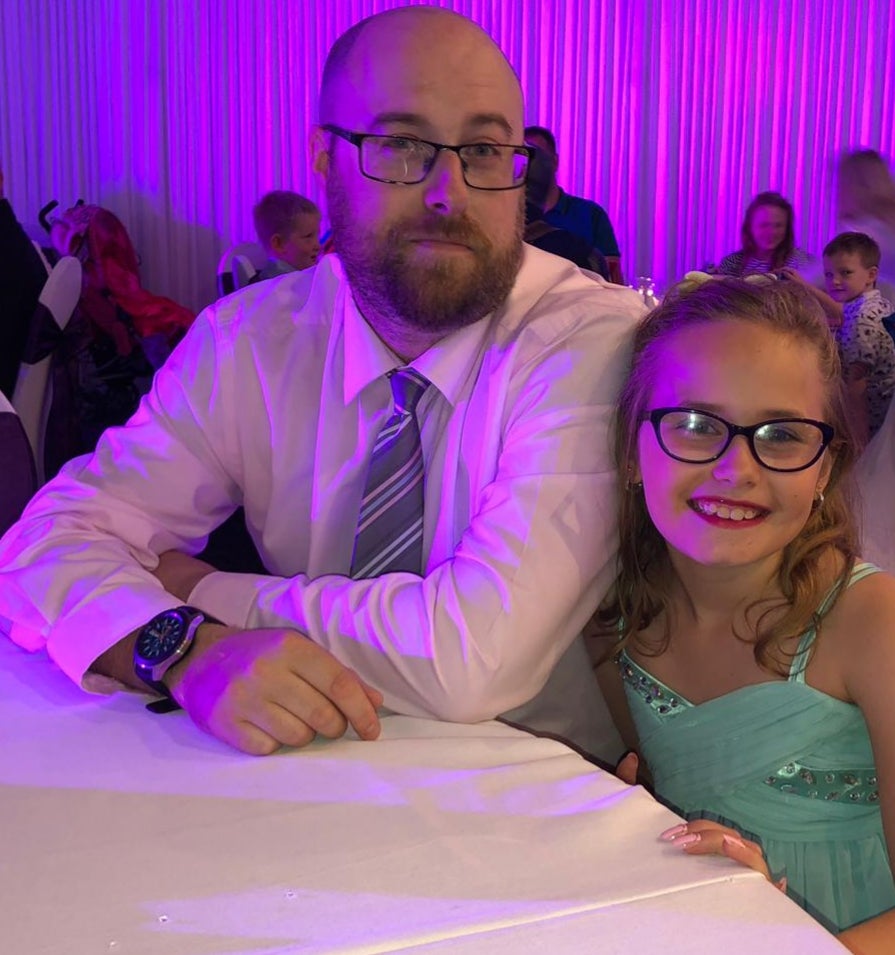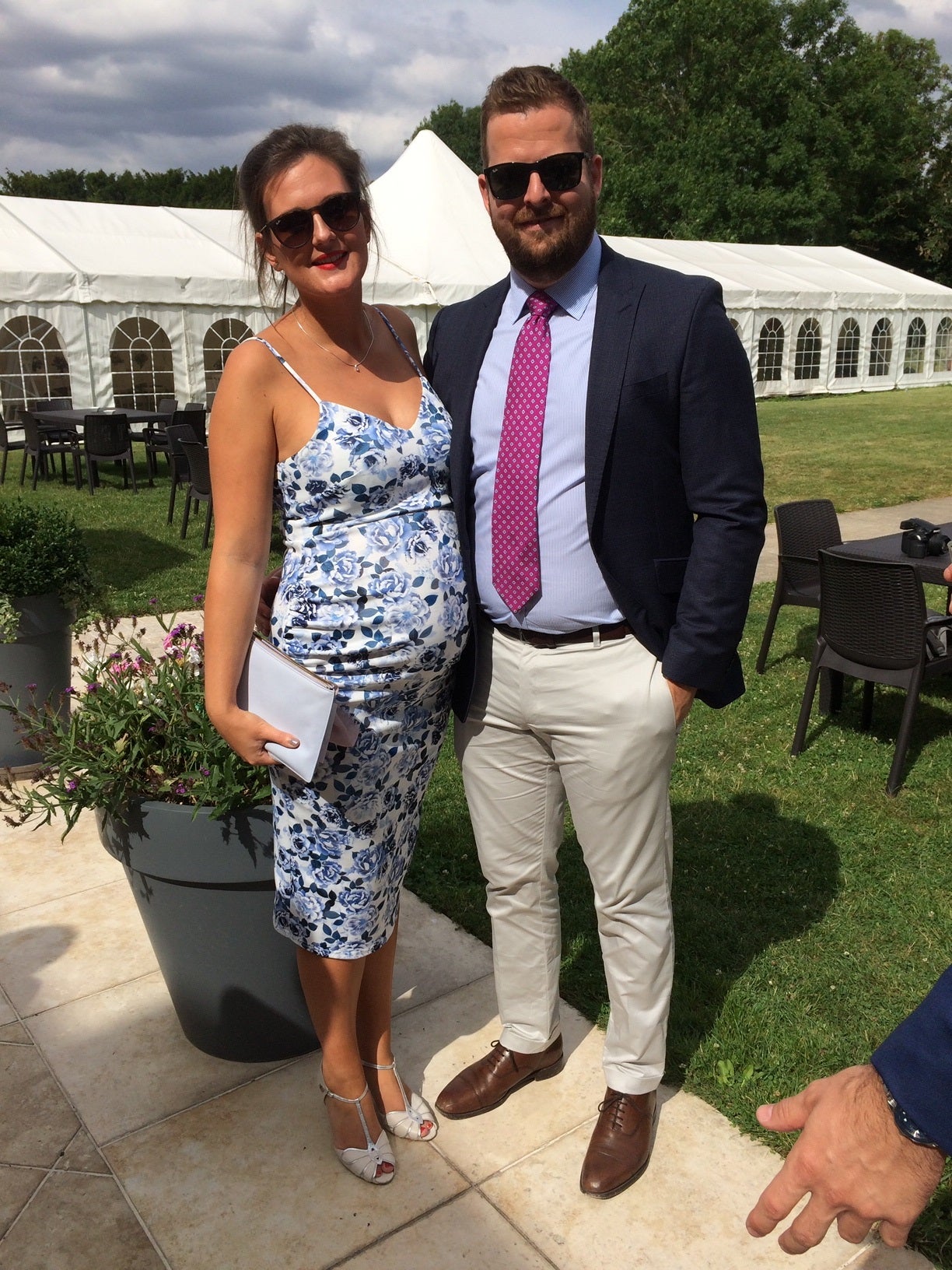'He looked like he was sleeping': The heartache of being a father to a stillborn baby
‘You’re just in a state of shock’


Your support helps us to tell the story
From reproductive rights to climate change to Big Tech, The Independent is on the ground when the story is developing. Whether it's investigating the financials of Elon Musk's pro-Trump PAC or producing our latest documentary, 'The A Word', which shines a light on the American women fighting for reproductive rights, we know how important it is to parse out the facts from the messaging.
At such a critical moment in US history, we need reporters on the ground. Your donation allows us to keep sending journalists to speak to both sides of the story.
The Independent is trusted by Americans across the entire political spectrum. And unlike many other quality news outlets, we choose not to lock Americans out of our reporting and analysis with paywalls. We believe quality journalism should be available to everyone, paid for by those who can afford it.
Your support makes all the difference.One in four pregnancies will end in miscarriage and nine babies are stillborn every day in the UK, yet there is still enormous taboo around speaking openly about experiencing pregnancy and baby loss. Baby Loss Awareness Week 2019 takes place from Wednesday 9 October to Tuesday 15 October. Each day, The Independent will be publishing a new story to shed light on people’s experiences.
Discussions around stillbirth predominantly – and understandably – centre around the experiences of the mother, who has had to cope with the trauma of the event taking place within her own body.
But while we try to raise awareness around pregnancy and baby loss, there is a group that is often left behind: fathers. The isolation of being left behind as a father to a stillborn baby is a taboo subject that many keep bottled up, according to charities, leaving the process of dealing with the grief even more difficult to compute.
Here, three fathers who lost babies to stillbirth, tell their accounts of what happened, and what helped them the most in even their darkest hours.
Ben Ingram

In April 2019, Ben Ingram’s wife, Katie, gave birth to their stillborn daughter, Ottilie, at 39 weeks. Having married in 2012, Ottilie was conceived during Ben and Katie’s second round of IVF. Ben, a 37-year-old advertising sales manager, says his wife’s pregnancy had, in his opinion, been fairly straightforward and “relaxed”. However, on the day Katie was due to be induced, the couple were informed during a scan that their baby no longer had a heartbeat.
“When we fell pregnant, we were constantly in a place of trying to manage our hopes and dreams,” Ben says. “I wanted children, but was nervous about becoming a father. But my wife was so mentally ready to become a mother.”
During the later stages of their pregnancy, because they had conceived through IVF and Katie was 41 years old, they underwent more monitoring scans than other pregnant women may have done. On Wednesday 17 April, when Katie was 39 weeks pregnant, she was told during a scan that everything was fine. The midwives offered Katie the option of starting the induction process that afternoon or waiting until the morning. Ben and Katie chose the latter.
It was the weirdest, most horrific, strangest situation because there was no panic
“When we got in the following morning, we got shown to a bed and they did an initial scan,” Ben states. “For us, having seen a lot of the scans, when they did the scan on that morning, we immediately knew that something wasn’t right.”
Ben and Katie were taken to a separate room, where a second scan confirmed that there was no heartbeat.
“It was in itself the weirdest, most horrific, strangest situation to be in because there was no panic. It wasn’t like all of a sudden we were being rushed off somewhere. It was just a very finite thing,” Ben says.
“I can remember myself just staring at these lovely people in Barnet who were having to deliver us the most awful news, and just willing one of them to say something different or say, ‘This is fine. We can sort this. This isn’t the end of it.’ No amount of staring was ever going to change the things they were saying. In those moments, it was brutal.”
Following the death of their daughter Ottilie, Ben says he and Katie’s friends and family showed an “immense amount of concern” for them while also processing their own grief. But he was taken aback by the lack of mental support he received as the father of a baby who was stillborn.
“The NHS offers counselling sessions, but those counselling sessions were offered to either Katie on her own or to Katie and myself. It could only be one or the other, and it was never offered to me on my own,” he explains.
After Ottilie was delivered via C-section, Katie required a lot of physical assistance. This provided Ben with a sense of responsibility, as he felt he “understood what he needed to do”.
“I could help Katie move around, I could help with the drugs she needed to take to help her heal, I could help with the exercises and the small muscle movements to help her heal, I could be that person,” Ben says. “I felt useful and I sort of understood my role.”
For us, Ottilie stood for something
However, when the couple started resuming their everyday routine, Ben started to feel “a bit lost”. The advertising sales manager began to fear saying things in front of his wife that may upset her, although open conversations with Katie, which she initiated, have allowed them both to understand each other’s grief.
“Everybody seems to think there’s some sort of hierarchy of grief,” Ben states. “Mum’s grief and dad’s grief shouldn’t be compared. Both are suffering an immense amount of pain. I think there is a focus on women, and I wouldn’t want that to change. But I would definitely like the amount of focus on fathers to increase.”
“For us, Ottilie stood for something and meant something more than just a stillbirth. She’s going to be something that we carry with us for the whole of our lives.”
Brian Playfair

On 27 January 2014, Brian Playfair, a former royal navy medic, lost his son Lachlan to stillbirth at 34 weeks. Throughout his wife Kerry’s pregnancy, their baby had moved around in the womb a lot. However, on a Tuesday evening, Kerry noticed that the baby’s movements had come to a near stop. When the couple went into the hospital in Plymouth the next day, several medical professionals confirmed the news that they could not find a heartbeat. Brian and Kerry returned to the hospital a few days later, where another couple of days went by before Lachlan was born. Following the devastating loss of his son, Brian developed severe depression and post-traumatic stress disorder (PTSD).
“Initially, we both just felt numb,” Brian says of the moment he and his wife were told of their son’s death. “You don’t really know what to think or do with yourself really, you’re just in a state of shock.”
Brian was the first person to hold Lachlan after he was born and remembers being struck by how healthy his baby looked.
He looked like he was sleeping
“He just looked so healthy. He looked like he was sleeping. He looked perfectly normal, except when a baby’s born they obviously don’t do much sleeping,” Brian states.
“I remember his head was resting on my left arm, and whenever my left arm dropped down a little bit his mouth would open. That would sort of remind me of what’s happened.”
Brian and Kerry spent as much time as they could with their son before had to say goodbye. The midwives, who Brian describes as “absolutely brilliant”, placed a cold mattress underneath the baby in his Moses basket in order to preserve his body for as long as possible.
“When I had to say goodbye to him, that was easily the single most emotional time of my life,” Brian says. “I’ve never felt so angry and frustrated, not just at the situation, but at my inability to protect my son as a dad. That was by far the hardest thing for me to get over.”
Brian was bewildered by the lack of support he received from the royal navy following Lachlan’s death, as some of his colleagues didn’t know what to say to him and he was “effectively being bullied by a couple of senior officers” at the time.
10 months after the loss of his son, Brian was diagnosed with PTSD.
He took four months off work and underwent EMDR treatment, (Eye Movement Desensitisation and Reprocessing), a form of psychotherapy that is used to help people who have suffered from traumatic experiences. Brian also began taking medication, which he still takes today. “I do still suffer with PTSD and depression, although not as bad as I used to,” he says.
While Brian and his wife did not undergo counselling immediately after Lachlan’s death, “locking themselves away in a bubble”, Brian found certain coping mechanisms beneficial, including going on walks and listening to music. His experience also spurred him onto to help other people who are struggling with mental health issues, becoming a mental health first aid instructor on the side, in addition to a retail manager and a law student.
It’s important to wait until you feel ok talking openly about losing your child
“I’m quite passionate about mental health nowadays,” Brian says. “A lot of people don’t understand how to deal with it, how to identify the symptoms. So that’s why I do that.”
Brian acknowledges that while there is increased awareness of stillbirth in the media, in his opinion, fathers require a greater level of “support and compassion”, stating that he feels they are “left in the cold a bit”.
Brian, Kerry and their children, Chelsey and four-year-old Leathan, frequently visit Lachlan’s grave at the cemetery. Brian says that it is important for bereaved parents to speak openly about their experiences at a time that feels right for them.
“I think you know when the time is right,” Brian says. “You get to a point as a parent where it helps you to talk openly and honestly about losing a child, stillbirth or not. Just wait for you to feel that’s it ok to do it.”
Dave Bailey

In 2016, Dave Bailey and his wife, Alice, suffered the stillbirth of their daughter Vera at 38 weeks. Having noticed that their baby had been moving less in the womb, Dave and Alice were checked at a hospital and told their daughter was fine. Two days later, while partaking in their routine 38-week appointment, they were told during a scan that their daughter had died. Alice was induced over the weekend, and almost died after delivering Vera due to severe blood loss. Dave and Alice were able to spend around six to seven hours with their baby before they had to say goodbye.
When Alice was taken to theatre in hospital following the complicated delivery of Vera, Dave helplessly watched as his wife was being treated by doctors, holding their stillborn daughter in his arms.
Alice remained in the labour ward for three more days, where she was able to hear the “horrific” sound of other babies being born and crying.
In the aftermath of their daughter’s death, Dave and Alice contacted Petals, a baby loss counselling charity.
We were able to support others if they wanted it
Initially, Alice was hesitant about attending counselling sessions with a stranger.
Dave was insistent that they go, stating that he found the counselling sessions – which he attended with Alice and on his own – very beneficial for his mental state while trying to process his grief.
It wasn’t until he and his wife took part in a piece of NHS research, where they found themselves in a room with other bereaved couples, that he realised how much the counselling with Petals had helped them both find a way to speak openly about the loss of their child.
“We were in a room answering questions and there were a couple of couples in there who just weren’t coping with the sessions,” Dave says.
“We later found out they hadn’t been going to counselling.”
Dave explains that this “reassured” him and Alice that their counselling was helping them, as they were able to say Vera’s name out loud, “whereas these people couldn’t even say their babies’ names”.
“It made us feel like we were in a fairly good place, and we were then able to support others if they wanted it,” he adds.
Dave believes that much of the stigma that still surrounds stillbirth is due to the fact that many people are under the impression that it is “rare”.
In 2017, one in every 238 births in the UK was a stillbirth, Sands outlines. This equates to nine stillborn babies a day and around 3,200 stillbirths that year.
You have to focus on the people who are supporting you
“We learnt that there’s a lot of people that this has happened to, but there’s also a lot of people who are interested in this area who are unable to get into it because it is under supported.”
Dave explains that he and Alice received a variety of reactions from friends following Vera’s death, some of which were supportive and others that were less empathetic.
“Because of how we were feeling at the time, you just had to dismiss those people for a bit because it was just too painful and focus on the people who were supporting you.”
If you have been affected by any of the issues raised in this article, you can contact stillbirth and neonatal death charity Sands on 0808 164 3332 or email helpline@sands.org.uk. The helpline is open from 9.30am to 5.30pm Monday to Friday, and until 9.30pm on Tuesday and Thursday evenings.
You can contact the Miscarriage Association helpline on 01924 200799 or email the charity at info@miscarriageassociation.org.uk. The helpline is open from 9am to 4pm Monday to Friday.
You can also find bereavement support at The Lullaby Trust by calling 0808 802 6868 or emailing support@lullabytrust.org.uk.
To contact Petals to enquire about the charity’s counselling services, you can call 0300 688 0068 or email counselling@petalscharity.org.
Join our commenting forum
Join thought-provoking conversations, follow other Independent readers and see their replies
Comments